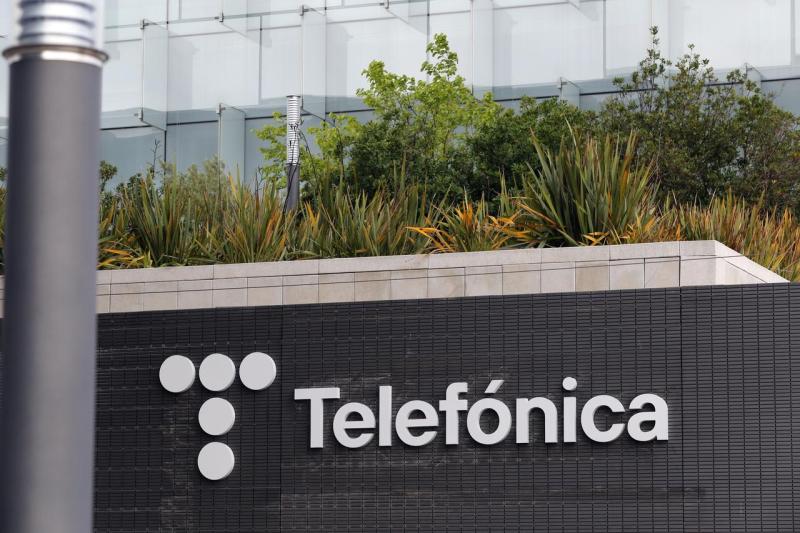Tax Control Policy
We present Telefónica´s Tax Control Policy aproved by the Board of Directors.

Tax control policy provides a list of key control activities as a guideline. Tax function heads in each subsidiary implement management procedures that align with the principles and rules of the regulations.
Purpose of tax control regulations
Purpose of the regulations
Telefónica Group´s internal tax framework is based on a Board-approved Tax Strategy, specific control regulations, and additional operational processes. These guidelines aim to align tax management with responsible business practices and follow relevant legal and OECD standards.
Scope of application
The regulations govern Telefónica, S.A. and its subsidiaries, requiring management to implement them. The parent company sets overarching rules but allows for subsidiary autonomy. The policy covers all tax obligations and is aimed at internal stakeholders.
Definition of internal tax control
Internal tax control focuses on timely and accurate tax compliance, operational efficiency, well-documented tax strategy, reliable tax information, transparency with third parties, and effective tax risk management.
Function of internal tax control
The Board of Directors, aided by the Audit and Control Committee and Internal Auditing, oversees the internal tax control system. Tax Department and local officers manage tax risks, guided by set principles. Necessary resources are allocated to ensure tax compliance and avoid aggressive tax planning, in line with a commitment to transparency.
The fundamental principles of the fiscal control function are as follows:
Principles of functional dependence
The person responsible for the internal tax control function in each subsidiary will report to the Tax Department on functional matters.
Principles of technical qualification
Tax Department professionals must have both academic and practical training in accounting, finance, and tax to perform their roles effectively. They must also stay updated on new tax laws and interpretations through methods like alerts, seminars, and training courses.
Principles of tax risk prevention and management
The company must follow the Tax Strategy in their operations. Tax Department professionals must give proper advice, take tax positions for business purposes, and adhere to specified criteria in fiscal matters.
The company lists transactions that have significant or special tax risks and requires them to follow specific risk assessment procedures. The company employs a dual methodology for managing tax risks: one for routine transactions and another for significant or risky transactions, all aimed at ensuring compliance and transparency.
Principles of diligent performance
In 2010, Telefónica adopted a Code of Good Practice in Tax Affairs, following OECD and Spanish law guidelines to operate transparently
The company avoids using tax havens and would only consider such jurisdictions with Board approval. Operations in low-tax areas are solely for business reasons and meet local resource requirements.
Telefónica also commits to the OECD Guidelines for Multinational Enterprises, particularly in relation to its Tax Control Framework. This framework is based on six pillars consistent with the COSO methodology for internal business control.
- Tax strategy: Documented and approved by the Board of Directors.
- Comprehensive application: Given that all operations may have a tax impact, the Tax Control Framework is applicable to all the company’s activities.
- Defined responsibilities: The Board of Directors oversees the Tax Control Framework, while the Tax Department is responsible for its execution and is adequately resourced.
- Documented governance: Telefónica has systems to analyse transactions and manage tax risks, with sufficient resources for implementation and review.
- Testing and monitoring: Regular assessments are conducted to gauge compliance with the Tax Control Framework’s policies and processes.
- Providing assurance: Telefónica’s internal tax control framework assures stakeholders and tax authorities that tax risks are well-managed and tax returns are accurate and complete.
Principle of transparency in relations with the tax authorities
The company maintain relations with tax authorities based on principles of transparency, mutual trust, good faith, and loyalty, adhering to established good tax practices.
- The company works with tax authorities to identify and address fraudulent tax activities in its operating markets.
- The company promptly provides all requested tax-related information and documents to tax authorities.
- The company openly discusses and negotiates relevant issues with tax authorities, aiming for resolution while maintaining good business practices.
Operating rules for the prevention and management of tax risk
Telefónica uses a COSO-based Corporate Risk Management Model to identify, assess, and manage various types of risks, categorised into business, operational, financial, and legal and regulatory compliance. Financial risk includes tax risks, and specific guidelines are in place for managing these risks.
Typology of tax risks and associated controls
Telefónica classifies fiscal risks into three categories:
- Compliance risk, which concerns fulfilling tax obligations.
- Interpretation risk, which involves differing interpretations of tax laws.
- Regulatory risk, related to legislative changes and complexity.
The company has controls in place to manage these tax risks.
Tax risk identification and assessment
The Corporate Risk Management Model handles risk identification, assessment, and monitoring. The Corporate Tax Department leads in managing tax risks, updating them quarterly. The company evaluates risks based on probability and impact, including reputational risks from public scrutiny.
Information obligations
Quarterly, each company’s tax controllers report to the Tax Department on tax risks, audits, and assessments. These reports cover various aspects like court disputes and open fiscal years. The Tax Department then updates the Risk Management and Audit Committee. Procedures are in place for compliance with DAC 6 and for reporting to sustainability indexes like FTSE4Good and Dow Jones.
Standardisation of tax structures
The Tax Department, with Regional Tax Departments, oversees the structure, staffing, and performance of tax units. They coordinate with the People Department and relevant committees on manager appointments, pay, and objectives.
Integration and coordination
The head of the tax function in each company is involved in analysing transactions with tax implications. They are provided with essential resources, full support from the company, and optional employee participation and cooperation.
Supervision of the internal tax control: Organisation
Telefónica uses an internal control model aligned with the COSO framework, a global standard for internal control and risk management. This model aims to provide reasonable assurance for achieving objectives in operations, information, and compliance. Roles and responsibilities in the Group’s tax risk control and management are defined according to this model.
Telefónica, S.A. Board of Directors
At Telefónica, we take our tax risk control and management responsibilities seriously. Our Board of Directors plays a pivotal role in overseeing these aspects, in line with Article 529 ter of the Corporate Companies Act. The Board of Directors is responsible for:
- Tax Strategy and Control Policy: The Board approves the Tax Strategy and this Tax Control Policy, which outlines our approach to tax matters and risk management.
- Monitoring and implementation: We keep track of the fiscal policies followed during the year, the evolution of main tax risks, and the effectiveness of measures implemented to mitigate such risks.
- Fiscal Impact: We approve information with fiscal impact included in the Management Report.
- Other Fiscal Matters: Any other fiscal matters of relevance are communicated to and approved by the Board.
We are committed to maintaining the highest standards of transparency and integrity in all our operations.
Telefónica, S.A. Audit and Control Committee
The Audit and Control Committee manages the tax risks in compliance with relevant laws and best practices. The committee oversees tax strategy compliance and its practical application, evaluates non-financial tax-related information, and informs the Board accordingly. It also recommends tax audits, manages a confidential whistle-blowing channel for tax issues, and serves as a tax advisor to the Board.
Group Tax Department and Regional Departments
Some of the functions of the Group Tax Department, directly or indirectly through the Regional Directorates, are:
- Internal control and management of tax risks in Telefónica Group.
- Represent the Group as such, and its companies in particular, before national and supranational tax authorities (AEAT, CEOE, OECD, etc.).
- Sign the Group’s consolidated tax returns as well as the reports, disclosures and agreements made within the Group’s inspection proceedings.
- Create and lead working groups with companies in the sector or with a similar volume to achieve regulatory improvements or tax incentives for the Group’s activity, either as a whole or for the individual activity of each company
Local tax officer
Tax function heads in each subsidiary are tasked with implementing management procedures that align with the regulations’ principles and rules. The document provides a list of key control activities as a guideline.
The approval of this Policy, as well as its updates, is the responsibility of the Board of Directors. The company reviews the content of this Policy annually and when circumstances make it advisable, to ensure its proper functioning. You can see more information in the document below:
Related Content
Communication
Contact our communication department or requests additional material.


